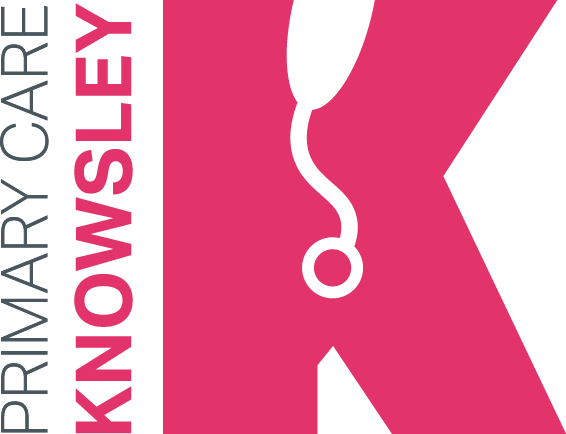Mental health resources
Struggling with your mental health? You are not alone. 1 in 4 of us will suffer from mental health problems every year. This can be across a range of conditions, the most common being anxiety and depression.
Underlying causes are thought to be a combination of biological, psychological and lifestyle factors, which means it is vital to consider all three of these areas in the journey to recovery. We have gathered some resources, below, to support you in this.
Need urgent help?
If you need urgent help, please skip to the relevant section further down this page.
Lifestyle and social help
The NHS website has some great advice, tips and tools to help you make the best choices about your health and wellbeing.
Addressing sleep problems
Find advice here from national sleep foundation.
Sleepio provides online help for sleep problems, based on CBT
Sleepstation is a drug-free and clinically validated sleep improvement programme, delivered entirely online and available on the NHS
Addressing social isolation
It is so easy to feel lonely in a society where everyone seems busy, yet we know excellent social support and engagement is key in positive mental wellness. If you are struggling to find your own social networks, here are some resources to help you:
Social prescribing, with Care Merseyside, is a new venture whereby your GP is able to refer you to a link worker, who will discuss your holistic needs with you, and look to help you take control of your own health, by engaging with activities such as volunteering, arts/craft projects, gardening, befriending, cookery, sports to name but a few. Fine out more HERE.
Employment, housing and finance
If you feel work is contributing to your mental health problems, or conversely, that your mental health is impacting your ability to perform your job, it may be your GP can issue you a ‘med3’, or a sick note. This is a note that can excuse you from work until things improve. However, it can also allow you to work, but with amended duties, or altered hours. These are excellent options, as they mean you have some time to tackle your mental health, whilst maintaining some structure and social interaction, which are important. .
If you are struggling financially, Your GP is able to refer you to the Citizens Advice Bureau, who come to the to the practice. They can help if you are struggling to make ends meet, worried about debt, or are unsure as to whether you are entitled to benefits/income support. They also offer free online advice at https://citizensadviceknowsley.org.uk/ or you can drop in at any of their centers. Times and locations are listed online.
Relationships
Relate are a free counseling service for anyone struggling with ANY type of relationship, whether past or present, with partners, family, children, work colleagues. They have a website full of brilliant resources and contact details for assessment and support:
Self directed and online psychological help
Kooth is a popular online mental health and emotional wellbeing support service, available to all 14-25 year olds in Liverpool.
Mindfulness. Consider a mindfulness app such as Headspace and Calm
Big White Wall– online community mental health services available to students at affiliated universities, including University of Liverpool. Offers peer support, self-help programmes etc.
Space from stress– free online CBT self-help.
Mood Gym. On-line CBT
Talking therapies
Think Wellbeing is an NHS service in Knowsley offering a range of talking therapies, from group sessions to CBT/CAT etc. This is a self-referral process.
Alternatively you can seek counselling privately. The Counselling Directory is a useful resource for finding a therapist to suit your needs.
Biological help (medication)
Medication is not for everyone, but if your GP has suggested it may be beneficial for you, here is some basic information about medications used:
1. Beta blockers – e.g propranolol. Used as needed for the physical symptoms of anxiety and panic- palpitations, dizziness, breathlessness, sweating, nausea etc. Work in the short term.
2. SSRI’s – examples are fluoxetine, sertraline, citalopram. These are used for anxiety and depression, often when these diagnoses are affecting how a patient functions. SSRI’s are usually well tolerated and are a safe drug. They can take 2-3 weeks to work, they very occasionally can make things slightly worse before better, and they can have some mild side effects initially, which tend to go after a week or so. After a first episode of anxiety or depression, you tend to use for 6-12 months. This would always be monitored by your GP.
3. Occasionally, your GP may suggest a sleeping tablet. In some circumstances, these can be very useful, for example after an acute upset or life event. However, these can be addictive, and are not a long term solution for sleep problems.
However, there are some important things to note about taking medication:
Medication is not recommended for mild or moderate depression.
Although medication can treat some symptoms of depression and anxiety, it does not address the causes. Therefore, combining medication with psychological and social interventions is vital
Medication is at least a 6 month commitment– It is recommended you continue with medication for 6 months after your symptoms have improved to reduce chance of symptoms returning.
It is worth mentioning that there are some medications that can treat mental health that you do not need a prescription for. These are available over the counter, are herbal-based, and include:
St Johns Wort – This has been used to mild and moderate depression, mild anxiety and sleep disorders.
Dr Bachs – These products include a ‘rescue remedy’ spray to help with anxiety and panic, and a sleep product.
Nytol – these products focus on helping with sleep.
Although these are not prescribed by a GP, and not included in clinical guidance, anecdotal evidence is that they can be beneficial. Before you take these products, make sure you discuss them with the pharmacist to ensure they are right for you.
Your GP can guide you on whether medication is right for you at this time.
URGENT HELP
Your practice is open 8am-630pm Monday-Friday. A GP will always call you back between these hours if you are in crisis.
THIS LINK tells you how to get urgent mental health help in a crisis in our area.
The Samaritans, OPEN 24/7 – call 116 123
Staying Safe: Help and resources for people experiencing suicidal thoughts.
PAPYRUS provides confidential support and advice to young people struggling with thoughts of suicide, and anyone worried about a young person through their helpline, HOPELINEUK: 0800 068 4141
IAPT Improving Access to Phsychological Therapies (Knowsley) 0151 430 1707
Knowsley CAMHS Services offers advice and support for people aged up to 18 and can help with lots of problems or worries such as if you’re feeling depressed, not enjoying food, feeling panicked or scared, having trouble concentrating, or having problems with your family life. Find out more by calling 0151 489 6137.
Young Minds Parents Helpline offers free, confidential online and telephone support, including information and advice to any adult worried about the emotional problems, behaviour or mental health of a child or young person up to the age of 25. Lines are open Lines are open 9.30am to 4.00pm, Monday to Friday 0808 802 5544 (free for mobiles and landlines). YoungMinds website also has a range of support and guidance for parents who maybe worried about their child.
CALM – Campaign Against Living Miserably – a registered charity, which exists to prevent male suicide in the UK. Phone: 0800 58 58 58 or visit the CALM website.
AMPARO – support after suicide – offering advice and support around suicide prevention as well as suppor to adults, children and young people affecting by suicide. Find out more by calling 0330 088 9255, emailing referrals@listening-ear.co.uk, visit the website or follow on Twitter.
SOBS (Survivors of Bereavement by Suicide) – meeting the needs and overcoming the isolation experienced by people over the age of 18 who have been bereaved by suicide. Find out more by calling 0300 111 5065, emailing sobs.support@hotmail.com, visit the website or follow on Twitter.
Other general resources
‘Autism and Mental Health’– a leaflet from Autistica UK
Self Help Guides. A range of fantastic leaflets from Mersey Care.
Adult ADHD self report scale. This is not a diagnostic test, but may be useful for you to fill in if you think you may have ADHD, before seeing a GP. (WHO/Harvard Medical School)
Generalised Anxiety Disorder- Self Help
‘Autistic Spectrum Quotient 10‘ (for adults). This is not a diagnostic test, but a useful guide (recommended by NICE) for recognising when people may benefit from referral. If you think you may be on the autistic spectrum, it may be helpful to complete this test before seeing your GP. More information about Autistic Spectrum Disorder here.
Beacon Counselling Trust. They offer free gambling counselling in Liverpool.
The Charlie Waller Memorial Trust raises awareness of depression and fights stigma so that people stay mentally well and get the help they need.
Dementia Information Service emails from NHS Choices. Sign up here.
Social Phobia Questionnaire. A screening questionnaire for Social Phobia. This is not diagnostic. Always discuss results with your doctor if concerned.
CLICK ON THE RELEVANT LINK BELOW TO NAVIGATE TO THE PRIMARY CARE KNOWSLEY PRACTICE WEBSITE OF YOUR CHOICE
BLUEBELL LANE MEDICAL PRACTICE
Bluebell Lane
Huyton
L36 7XY
ROSEHEATH SURGERY
Roseheath Drive
Liverpool
L26 9UH
CORNERWAYS MEDICAL CENTRE
North Huyton Primary Care Centre
Woolfall Health Avenue
Huyton
Liverpool
L36 3TN
Dr MAASSARANI & PARTNERS
Towerhill Primary Care Resource Centre
Melling Surgery
ASTON HEALTHCARE
Camberley Medical Centre
Gresford Medical Centre
Knowsley Medical Centre
Leathers Lane Surgery
Manor Farm Primary Care
Resource Centre
Whiston Primary Care Resource Centre


